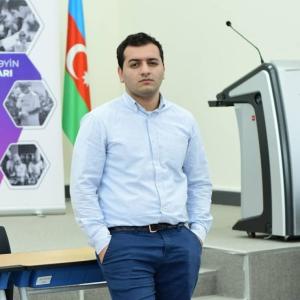A series of measures have been implemented to control pests and pesticides
01 July 2022
- A series of events were held in Baku between June 27 and 29 within the regional project "Lifecycle Management of Pesticides and Disposal of POPs Pesticides in Central Asian countries and Turkey".

A meeting of the Regional Steering Committee of the project was held on June 27-28. The purpose of the meeting was to discuss priorities by country and approve the project's activities and work plans.
The events were attended by representatives of the relevant state institutions, experts, and dignitaries from Turkey, Kazakhstan, Kyrgyzstan and Tajikistan. On the first day of the event, technical training covering pesticide behaviour, rules for using personal protective equipment, and gender elements were held. Gender aspects related to this field were discussed in technical exercises covering gender elements. The two-part workshop discussed how to promote gender equality in future activities to improve the safe use of pesticides. On the third day of the event, the guests visited the Cengi pesticide landfill and got acquainted with the advanced conditions created in the field and the work done. It should be noted that the packing of 217 tons of hazardous chemicals based on international standards is currently underway at the Cengi pesticide landfill, where obsolete pesticides are stored.
"Repackaging obsolete pesticides and securing them in a safe and controlled area is an important step to prevent health hazards and environmental risks in the region until a viable disposal option is available," said Tania Santivanez, FAO Agriculture Officer and lead technical officer of the project. "Therefore, it is crucial to increase the knowledge among responsible government staff about proper planning and implementation of safeguarding", she added.
Melek Cakmak, Head of Partnership and Liaison Office and FAO Representative in Azerbaijan, said, "due to the lack of proper management and planning in pesticide production and used during the Soviet period, all Central Asian countries and Azerbaijan suffered from the consequences of this. Many obsolete pesticides are still considered a serious hazard to both environment and human health." She highlighted that this project tackles this issue by creating sustainable solutions to support beneficiary governments.
Safeguarding 217 tonnes of liquid polidofen (an old Soviet DDT-based pesticide) and other very long-living pesticides started under the project at the Jangi landfill in Azerbaijan to initiate sustainable solutions in obsolete pesticide management. "Together with FAO, we would like to work on more sustainable management of obsolete pesticides in Azerbaijan, and the recent safeguarding activity is a key beginning of this important collaboration," explained Jafar Maharramov, Deputy Chairman of the Agrarian Services Agency under the Ministry of Agriculture.Several activities have been carried out within the framework of the project, which was launched in 2019. Inventory of unusable pesticides across the country, analysis of the legal framework, proposals to eliminate gaps, the study of alternative possibilities for the destruction of pesticides, incredibly persistent organic pollutants, and relevant technical studies were carried out in the past. In addition, to reduce the use of hazardous pesticides and promote alternative methods for them, pilot activities were carried out in the field of vegetable growing in Khachmaz, Samukh, Shamkir and Goranboy regions to apply advanced agricultural practices, including integrated pest control methods.



